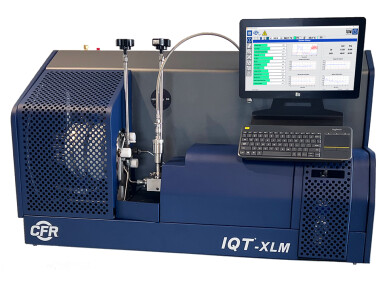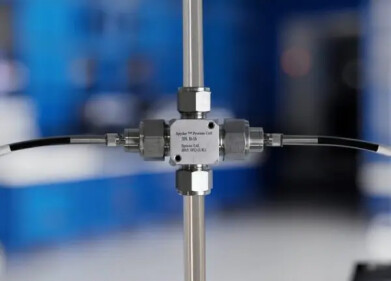Analytical Instrumentation
Highly Accurate Cetane Number Analysis
Apr 16 2014
PAC (USA), a global provider of advanced analytical instruments for laboratories and online process applications, developed the newly released ASTM D7668 “Standard Test Method for Determination of Derived Cetane Number (DCN) of Diesel Fuel Oils—Ignition Delay and Combustion Delay Using a Constant Volume Combustion Chamber Method” for the PAC Herzog CID 510. It provides highly accurate Derived Cetane Number (DCN) analysis for diesel fuels with excellent correlation to the CFR Engine.
As part of the method development process, ASTM and the Energy Institute conducted an extensive interlaboratoy study in March of 2013. In the ILS, 17 laboratories participated from the United States and Europe to compare the cetane number determined with the referee method, ASTM D613 (CFR Engine Technology) and the derived cetane number determined with the ASTM D7668 (CID 510). The precision of the CID 510 (ASTM D7668) from the ILS study is much better than traditional CFR Engine technology (ASTM D613), as well as other CVCC instruments (ASTM D7170 and ASTM D6890). In addition to high precision, the CID 510 provides excellent correlation to the mean value of the CFR Engine.
“With other technologies, refineries had to compensate for less precise centane number results in Diesel by adding more cetane improver to the process just to make sure they do not go below the minimum specification requirement for cetane number ” says David Tran, PAC Vice-President for Product Management and Marketing. “ With the excellent precision and correlation of our CID 510 technology, refineries are able to run their process closer to the true specification limit for the cetane number of diesel, allowing them to add just the right amount of Cetane improvers and achieve significant cost savings. For a refinery producing 100,000 barrels of Diesel per day, operating at 1 cetane number closer to the specification could save as much as $800,000 USD per year.”
In addition to high precision, the CID 510 has significant benefits. It is easy to use with fully automated measurement and one push button operation, as well as automated calibration. It also contains enhanced safety features, such as a built-in fire monitoring and suppression system, over pressure protection for the fuel injection system and combustion chamber, and a fuel level sensor for the injection system. The CID 510 is a benchtop unit, which means it is much smaller than the traditional CFR engine technology that typically required its own room.
Digital Edition
PIN 25.5 Oct/Nov 2024
November 2024
Analytical Instrumentation - Picturing Viscosity – How Can a Viscometer or a Rheometer Benefit You? - Sustainable Grease Formulations: Evaluating Key Performance Parameters and Testing Method...
View all digital editions
Events
Dec 03 2024 Dusseldorf, Germany
Dec 08 2024 Anaheim, CA, USA
Turkey & Black Sea Oil and Gas
Dec 11 2024 Istanbul, Turkey
Dec 19 2024 Aurangabad, India
Jan 20 2025 San Diego, CA, USA



















